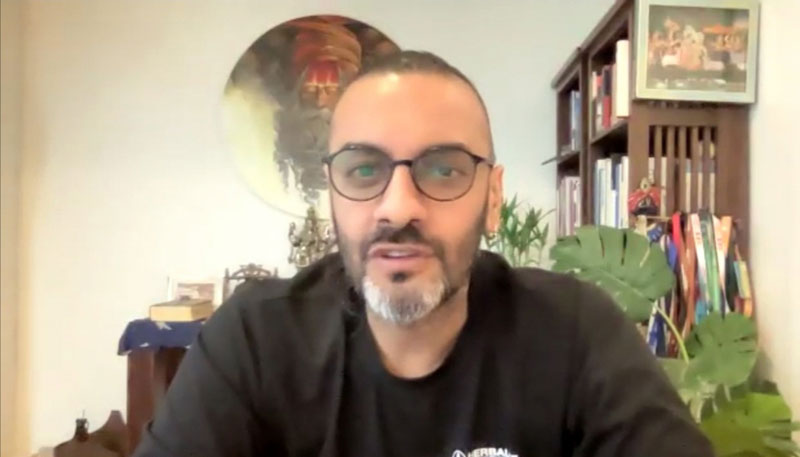Stress is part of daily living, but it can become a major cause for concern when it starts to affect one’s health. There are several ways to manage it, and we can start by being more mindful of the food we eat, and taking better care of our mental health.
Herbalife Nutrition Institute Chairman Dr. David Heber and Herbalife Nutrition Global Fitness Advisory Board Member Shayamal Vallabhjee shared ways to deal with stress.
Both Dr. Heber and Vallabhjee have been speakers in separate Herbalife Nutrition eWellness Tour events presented by Herbalife Nutrition Philippines. The monthly forum aims to promote nutrition education by inviting experts from the fields of science, nutrition, health, and fitness to talk about the importance of good nutrition and having a healthy active lifestyle in achieving overall health and wellbeing.
The Importance of Healthy Eating
Dr. Heber, who is the Chairman of the Herbalife Nutrition Institute, said that many people tend to overeat during times of stress.
“They turn to foods that are quick and comforting, but often loaded with fat, salt, and sugar,” he pointed out. “Being mindful of what you eat especially during stressful circumstances can help you manage stress levels and change the way you respond to it.”

Dr. Heber advised to avoid mindless snacking. To do this, reach for nutritious, hard and crunchy foods that can help relieve stress by putting your jaw muscles to work. Opt for snacks like almonds, soy nuts, or baby carrots instead of unhealthy food.
Avoid skipping meals as it might adversely affect your mood and energy levels.
“Blood sugar levels can fall, leading to increased stress. If stress is an appetite-killer, try eating smaller amounts of food more often during the day,” Dr. Heber said.
Apart from the food you eat, also make sure to stay active and get enough sleep. Exercise is a great stress reliever as it helps release endorphins that would help you naturally feel good. Sleep, meanwhile, helps the body go into repair mode.
“Collectively, nutrition, exercise, and sleep promote better health, and while they won’t take away the stressful situations, they can help you better manage stress levels and achieve a better overall wellbeing,” Dr. Heber said.
The Three Cs to Thriving in a Stressful Situation
On mental wellbeing, Vallabhjee, recommended cultivating the three Cs along with good nutrition, exercise, and sleep.
The three Cs stand for composure, competence, and confidence.
Composure can be achieved by training your mind to focus on your internal perspective.
“When you look externally, you make yourself a victim of that situation and you render yourself completely powerless. In an internal perspective, the mind is able to calm itself down. The mind is able to perceive a situation rationally,” he said.

The second C, competence, means how good a person is at something.
“When you have competence, you have a strength that you can execute in a high-pressure situation,” Vallabhjee said.
Confidence, meanwhile, can come in two ways: one, from motivation, and two from habit cultivation.
“The confidence you need to succeed comes from competence,” he underlined. “And these three — composure, competence, and confidence — can help you thrive in any environment.”



